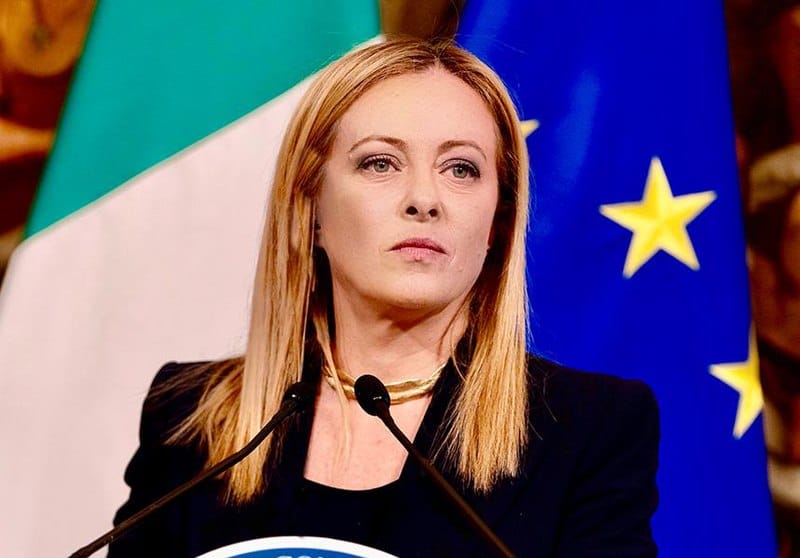Under the guise of increasing public order, Giorgia Meloni’s Draft Law 1660 is on the verge of criminalizing political dissent in Italy, stripping citizens of their rights and paving the way for unchecked state repression.
Senate draft bill 1660, introduced in September by Meloni’s government, has sparked significant controversy in Italy, and internationally. The proposal would reform the Italian Penal Code, with sweeping alterations including creating twenty new criminal offenses as well as expanding existing sanctions. The law undertakes a series of reforms so wide-ranging as to be difficult to believe it’s all presented in a single bill.
From its general aim to increase the power of law enforcement in Italy, it would extend penalties for existing crimes, imposing harsher restrictions on immigrants and prisoners for dissent. Resisting arrest or police brutality would be more harshly penalized, granting law enforcement officers virtual impunity. Notably, it would criminalize peaceful protest, and punish attempts to block roads or infrastructure with up to two years in prison.
The authoritarian bent of the 1660 proposal is clear—insofar as it attacks civic disobedience and resistance through protests or for those filed away in detention centers. That’s to say nothing of the fact it would flagrantly violate many of the principles set out in the European Declaration of Human Rights in 1949 and the European Social Charter of 1961 in the postwar era. The right to protest, to free association and to organize are enshrined in these agreements, as well as the Italian Constitution.
The rationale behind the 1660 law is that it will support rule of law in Italy overall by increasing punishment for “prison revolt” and incitement to riot in detention centers for immigrants. This reveals something of the xenophobic (in addition to anti-democratic) sentiment being mobilized around the law.
Beyond its impact on Italian citizens, the legal reform takes aim at those living without citizenship and without rights in Italy: it would criminalize humanitarian aid to migrants, and violate international refugee law. The law disproportionately targets migrants not only in provisions on resistance in detention centers, but in other arbitrary measures such as removing access to mobile phones for non-EU immigrants without residency permits.
It’s difficult to view this as anything other than yet another attempt from Meloni’s government and the “Fratelli d’Italia” party, with its fascist roots, to suppress civil rights, dissent and protest—in particular labor strikes, ecological movements, and antiwar sentiment—especially in light of Italy’s growing militarism.
The law can be understood in the context of the larger shift in the past two decades towards "securitization" of the EU, which limits civil rights in favor of “security” through the use of emergency exceptions as a legal loophole. While Europe usually prides itself on the extent of its right, put into place and upheld since World War II, in some of the most progressive constitutions and treaties of rights ever seen, we’re seeing a turn towards a darker past. Disturbingly, similar laws have come to the fore recently in other countries like the UK, which in 2022 passed a new policing act eerily similar to the 1660 law now proposed by Meloni. Europeans are having their right to dissent systematically curtailed under the guise of public order, with troubling implications for civil liberties, workers' rights, and minorities.








